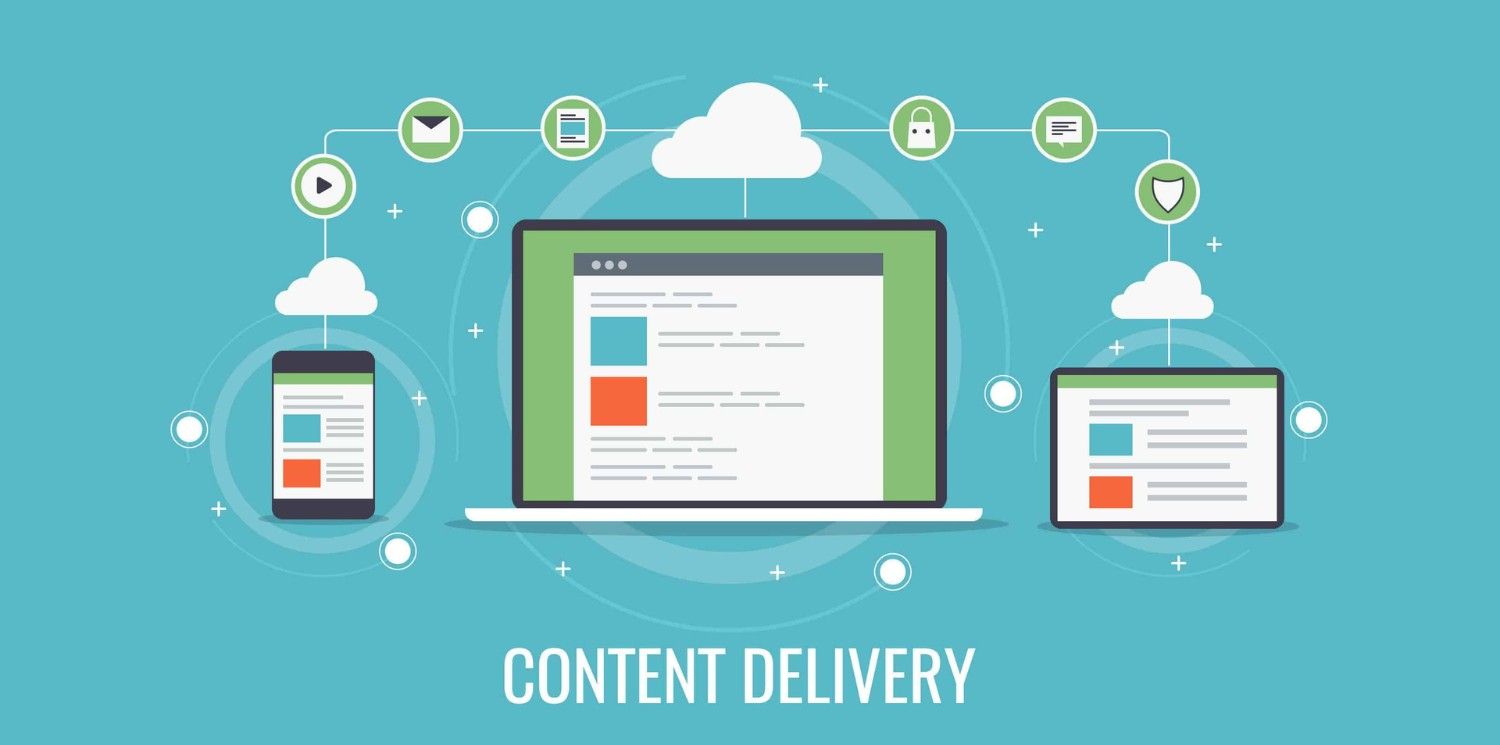What a CDN is and how it enhances digital marketing
Fast websites are key to keeping users engaged. A CDN ensures your site loads faster, reducing costs and improving SEO. Here's why CDNs matter.

Slow websites lose users. CDNs speed up your site by delivering content from the nearest server, cutting bounce rates and boosting SEO.
In this MarTech Stack series, we’re focusing on tools that drive digital marketing success. A CDN is crucial for fast website performance, increasing user engagement and improving search rankings.
With 53% of mobile users abandoning sites that take longer than 3 seconds to load, and a 7% drop in conversions for each second of delay, CDNs are essential for better performance and stronger results. Let’s break down why they matter to your business.
💡 Pressed for time? Here’s what matters:
- CDNs speed up your website by delivering content from the nearest server, improving load times and reducing bounce rates.
- A CDN is crucial for SEO: Faster sites rank higher on Google. CDNs also help with uptime, security, and user experience, which all affect your search ranking.
- CDNs reduce costs by lowering bandwidth consumption and server load, making your website more efficient.
- Global reach: CDNs make your content accessible faster worldwide, which is essential if you have a global audience.
- AI marketing systems benefit from CDNs by ensuring real-time, personalized content delivery, improving engagement and conversions.
- Choosing the right CDN means considering factors like audience location, website size, security, scalability, pricing, and customer support.
What is a Content delivery network (CDN)?
A Content delivery network (CDN) is a network of servers spread across multiple locations, designed to deliver website content quickly to users. Instead of serving your website’s content from a single server, a CDN caches content on multiple servers around the globe. This ensures faster load times for users, no matter where they are.
Popular CDN providers include Cloudflare, Akamai, and Amazon CloudFront. These services are built to ensure faster, more reliable content delivery.
How does a CDN work?
CDNs distribute your website's content across a network of servers. When a user visits your site, the CDN routes the content from the nearest server, reducing load time. This process is seamless and invisible to the user, ensuring they get the fastest possible experience.
For businesses, this means fewer performance issues and less strain on a single server. By spreading out the content, CDNs make it easier to handle traffic spikes, ensuring reliability even during high-demand periods.
Why should your business use a CDN?

Here’s why a CDN matters to your business:
SEO benefits
A CDN improves SEO by speeding up website load times. Google ranks faster websites higher. The quicker your site loads, the better your chances of ranking well in search engine results.
Fast load times also reduce bounce rates, which means users stick around longer. This can directly affect your site’s ranking.
Lower bandwidth costs
With a CDN, much of the content is cached on multiple servers. This reduces the load on your origin server and lowers bandwidth consumption. Less data transferred means lower costs.
Better user experience
Users expect fast websites. A CDN delivers. By reducing load times and improving performance, CDNs ensure a better experience, leading to higher user engagement and more conversions.
Research shows that 40% of users will abandon a site if it takes more than 3 seconds to load. This can severely affect a business’s conversion rates and revenue. A CDN ensures that your site loads quickly and efficiently, keeping users on your site longer and more engaged.
CDN’s role in marketing
CDNs are integral to successful marketing. Faster load times and improved content delivery lead to better campaign performance. With a CDN, users are less likely to bounce, and more likely to engage with your marketing content.
CDNs also enhance global reach, making your marketing campaigns more effective for international audiences. Whether you’re running an ad campaign or promoting a product, a CDN ensures your content is delivered fast and seamlessly across the globe.
For businesses with dynamic content (think personalized offers or targeted ads), CDNs ensure real-time content delivery that keeps up with the speed of modern marketing.
CDN’s impact on SEO
Here’s why CDNs are critical for SEO: They improve load times, reduce downtime, and enhance security—all things Google looks at when ranking sites. A faster site isn’t just good for users; it's essential for improving search rankings.
CDNs also help avoid downtime. When traffic spikes occur, CDNs handle the load instead of your origin server, ensuring your website stays online and your SEO ranking isn’t affected.
Additionally, many CDNs offer SSL certificates, which improve your site’s security—another SEO ranking factor for search engines.
CDN’s role in AI-driven marketing
For AI-driven marketing systems, speed is key. AI models rely on real-time data. CDNs make sure that data gets delivered without delay, allowing your AI to work at full capacity.
By ensuring quick delivery of personalized content, CDNs support AI systems that rely on personalization. Whether it’s recommending products or targeting users based on their behavior, CDNs make sure that AI marketing systems work smoothly and effectively.
AI systems also rely on large amounts of data. CDNs support this by delivering massive data sets quickly, ensuring that your AI systems don’t slow down.
Best CDN providers for businesses
There are several CDN providers to choose from. The right provider depends on your business needs. Some of the top options are:
1. Cloudflare
Known for ease of use and strong security features.
2. Akamai
One of the most established providers, offering excellent global coverage.
3. Amazon CloudFront
Ideal for businesses already using AWS services.
When selecting a CDN, look for speed, reliability, and security. It’s also important to find a provider that can scale with your business needs.
How to choose the right CDN for your business
Choosing the right CDN requires looking at a few key factors. Here’s a checklist to guide you:
- Audience location
Pick a CDN with servers close to your target audience for faster content delivery. - Website size
Ensure the CDN can handle the volume of content your site delivers. - Security features
Look for a CDN with SSL certificates, DDoS protection, and other security tools. - Scalability
Choose a CDN that can grow with your business as traffic increases. - Pricing
Compare pricing options to ensure the service fits within your budget. - Customer support
Make sure the provider offers solid customer support for quick issue resolution.
CDN pricing and cost considerations
CDN pricing depends on several factors, including data usage and the features you need. Some providers offer free services, but for larger businesses, premium plans may be necessary.
Expect to pay based on bandwidth usage—the more traffic your site gets, the higher the cost. But the savings from reduced bandwidth and improved site performance often outweigh the costs.
This is the seventh in a series of MarTech Stack articles, and we hope that this has provided insight into the MarTech landscape.
People also ask:
1. What does CDN mean?
A Content delivery network (CDN) is a global network of servers that helps deliver content quickly and efficiently to users.
2 What is an example of a CDN?
Examples of CDNs include Cloudflare, Amazon CloudFront, and Akamai.
3. Is CDN better for SEO?
Yes, CDNs improve SEO by speeding up website load times, which is a key factor for higher search rankings.
4. What is a CDN in marketing?
CDNs ensure fast, seamless delivery of marketing content, improving engagement, reducing bounce rates, and helping reach global audiences.
5. What does CDN stand for in SEO?
CDN stands for Content delivery network. It improves SEO by making your site faster and more secure.
6. How does CDN improve website security?
CDNs offer security features like SSL encryption, DDoS protection, and constant monitoring, helping keep your site safe from threats.
7. How does CDN support AI marketing?
CDNs ensure fast, real-time data delivery, enabling seamless AI-driven content personalization and predictive analytics.
Source
Business Wire. (2018, July 24). Slow websites are silent killers for businesses. Business Wire. Retrieved from https://www.businesswire.com/news/home/20180724005488/en/Slow-Websites-Are-Silent-Killers-for-Businesses




